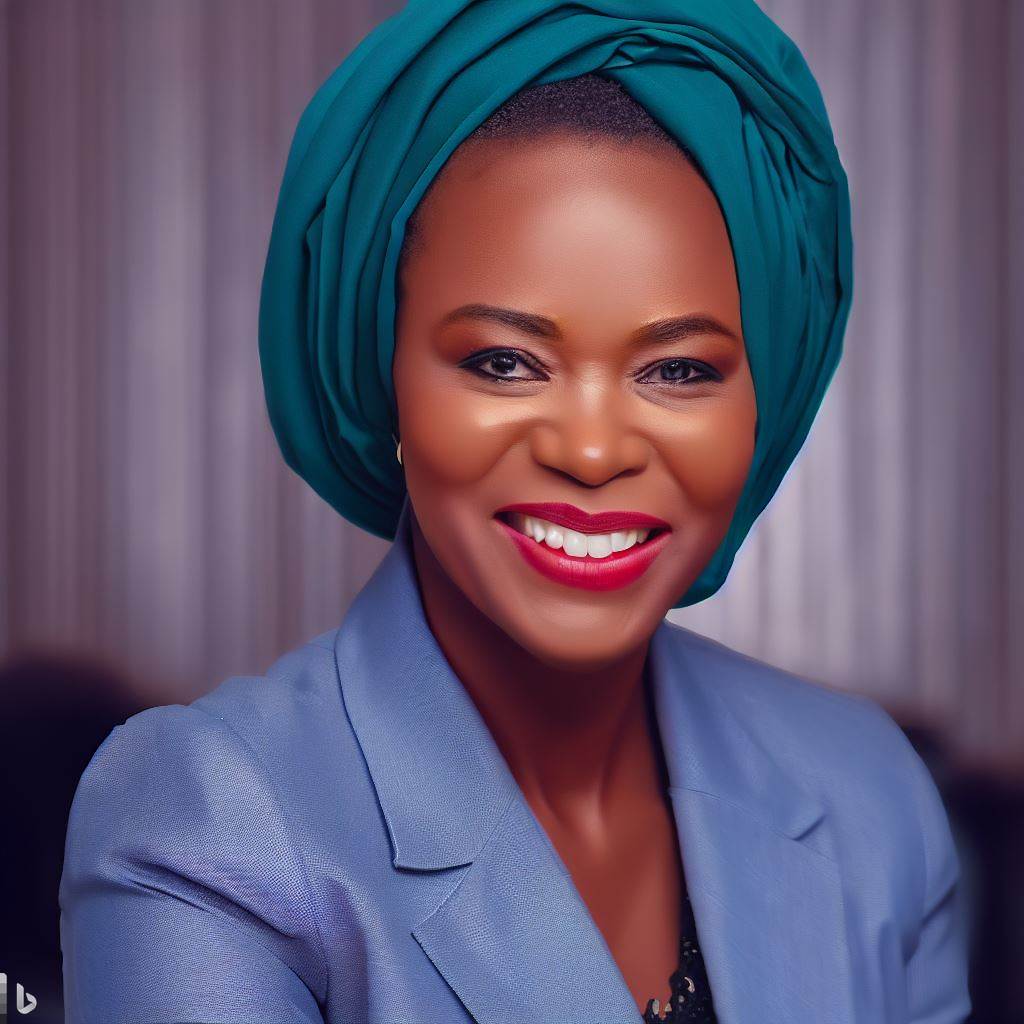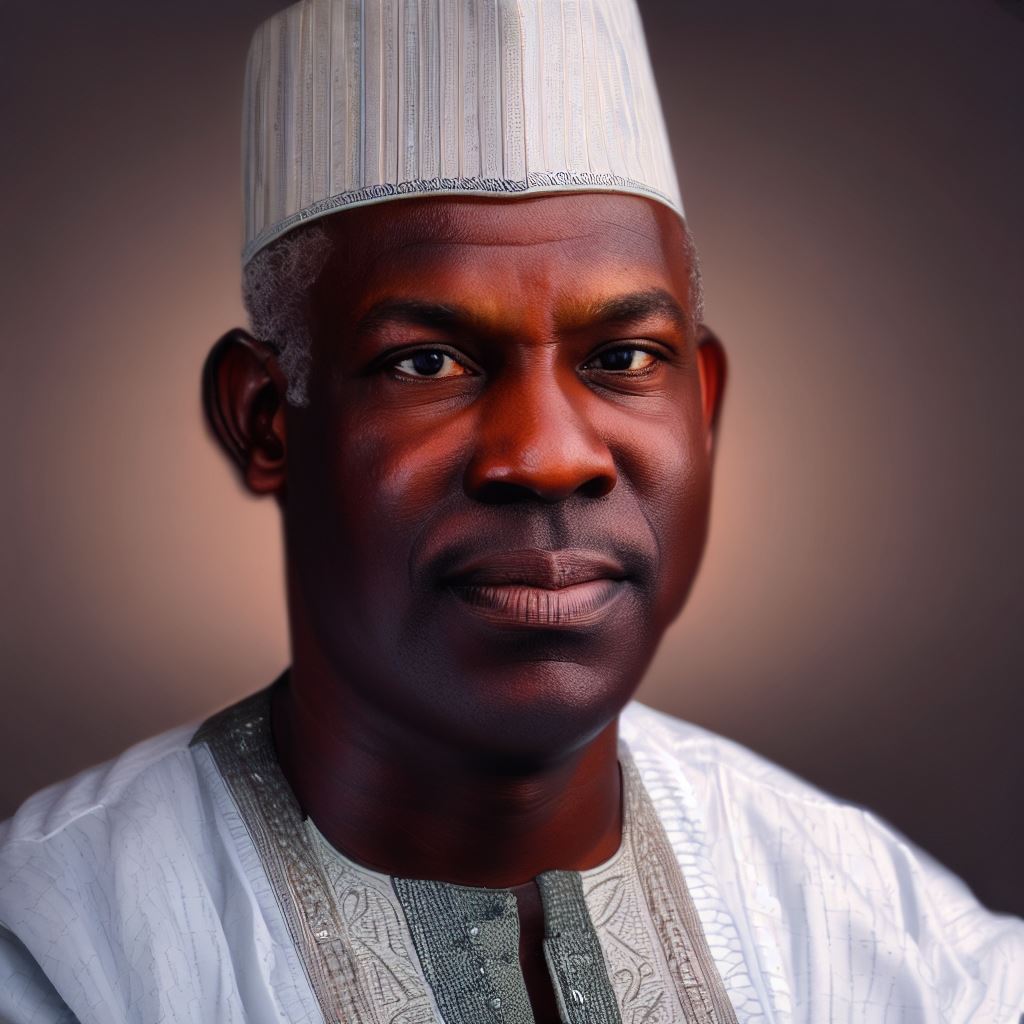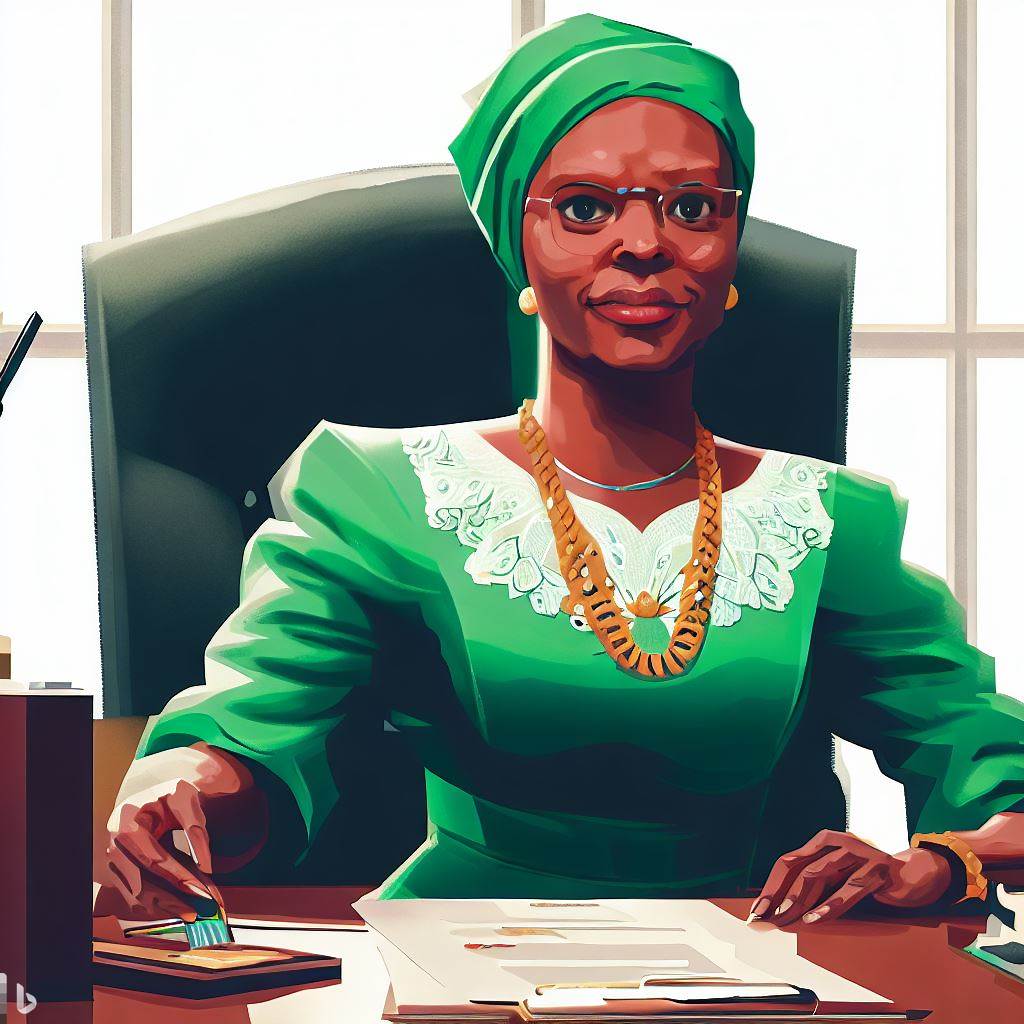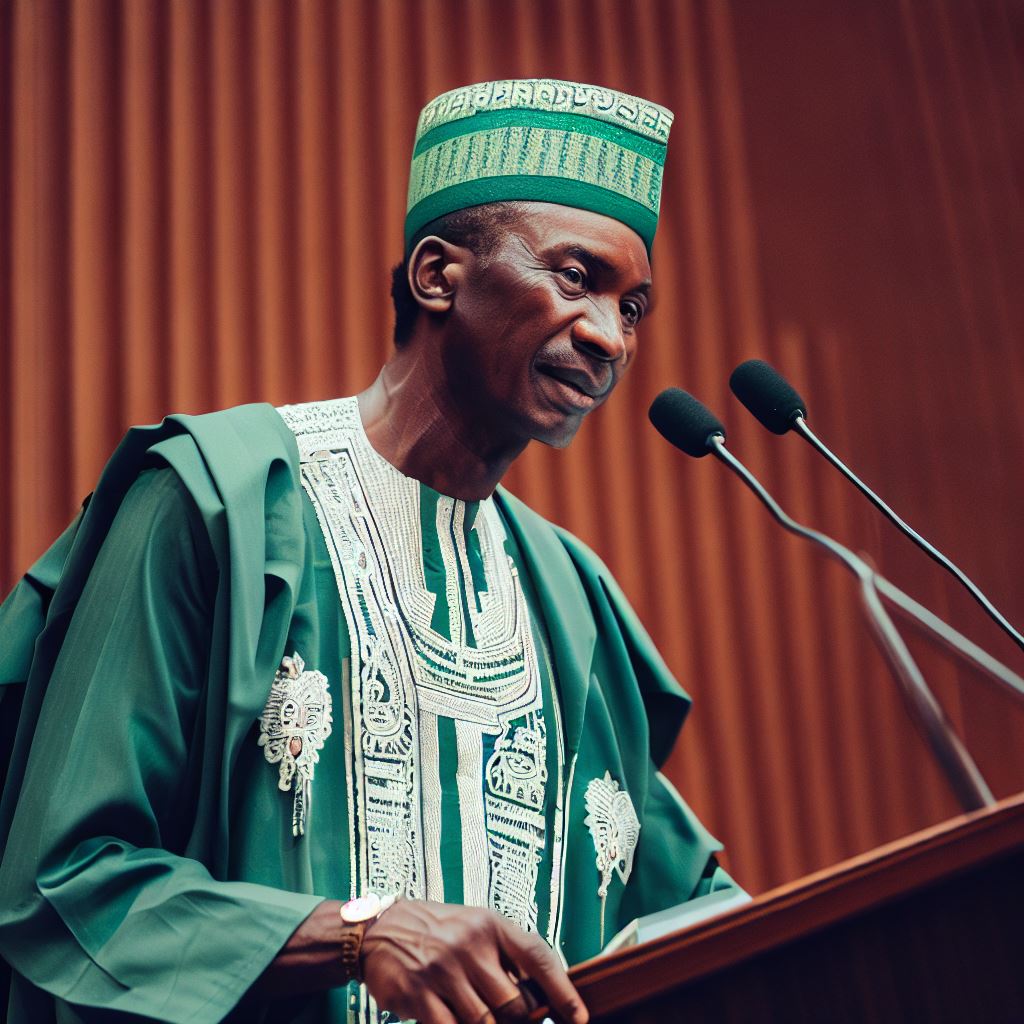Introduction
- Nigerian politics, the dynamic arena of governance, shapes the nation’s destiny.
- With over 60% of the population under 30, Nigerian youth possess immense political potential.
Nigeria’s Politics: A Crucial Force
Nigerian politics is the engine that propels the nation’s trajectory.
It’s not just about elections and governance; it’s about the heartbeat of a vibrant, diverse nation.
Understanding Nigerian politics is essential to grasp its socio-economic and cultural complexities.
The Youth Demographic Boom
Nigeria’s youth population is a game-changer.
With over 60% of Nigerians under 30, this demographic tsunami is poised to redefine the nation’s political landscape.
These young minds hold the keys to a new era of leadership, innovation, and progress.
In this section, we delve deeper into the intricacies of Nigerian politics and explore the transformative potential of its youth.
Brace yourself for an enlightening journey through the political landscape of Nigeria, where youth empowerment is the driving force of change.
Ultimately, Nigerian politics is the system and activities associated with governance and decision-making in Nigeria, which holds great significance in shaping the country’s future.
Nigeria, with a population of over 200 million, has a large youth population who play a crucial role in politics.
Historical overview of Nigerian politics
Traditional political system
- Nigeria’s political system was traditionally composed of various ethnic and tribal groups.
- Each group had its own system of governance, with rulers and chiefs leading their communities.
- Power was often centralized in the hands of monarchs or traditional rulers.
- These leaders made decisions and resolved conflicts within their communities.
Independence from colonial rule
- Nigeria gained independence from British colonial rule on October 1, 1960.
- This marked a significant turning point in Nigerian politics.
- Leaders emerged who fought for self-governance and the right to determine their own future.
- Political parties were established to rally support for independence and shape the future of the country.
- The struggle for independence laid the foundation for Nigeria’s modern political landscape.
Major political parties and leaders in the past
- In the early years of Nigerian politics, the Nigerian National Democratic Party (NNDP) and the National Council of Nigeria and Cameroon (NCNC) played significant roles.
- Herbert Macaulay, a prominent nationalist, founded the NNDP in 1923.
- Nnamdi Azikiwe, a respected nationalist leader, established the NCNC in 1944.
- Both parties fought for equal rights, representation, and self-governance for Nigerians.
- These parties laid the groundwork for the emergence of future political movements in the country.
- After independence, the Nigerian political landscape witnessed the emergence of new parties.
- The Northern People’s Congress (NPC) and the Action Group (AG) became major players.
- Sir Ahmadu Bello, the Sardauna of Sokoto, led the NPC, while Chief Obafemi Awolowo led the AG.
- These parties, along with their leaders, shaped the direction of Nigerian politics in the early post-independence era.
In the end, understanding the historical overview of Nigerian politics is essential to appreciate the current state of youth involvement in politics.
The traditional political system, Nigeria’s independence from colonial rule, and the major parties and leaders in the past have all paved the way for the new era of leadership.
It is within this context that the youth of Nigeria are now taking center stage in shaping the future of the country through active participation in politics.
Read: Nigeria’s Political Landscape: A 2023 Outlook
The rise of youth in Nigerian politics
Factors contributing to youth engagement
- Increased education opportunities: Youth in Nigeria now have greater access to education, enabling them to gain knowledge and skills necessary for political engagement.
- Social media and technology influence: The rise of social media platforms and technology has provided young Nigerians with a powerful tool to express their political views and connect with others.
- Desire for change and better governance: Youth in Nigeria are discontent with the current state of affairs and are motivated to drive change and demand better governance.
Examples of prominent young Nigerian politicians
Several young Nigerian politicians have emerged in recent years, demonstrating the growing influence of the youth in Nigerian politics:
- Ibrahim Babangida: Babangida, at the age of 26, became the youngest Nigerian military officer to hold the position of Major in the Nigerian Army.
- Aisha Yesufu: Yesufu gained prominence as a Nigerian activist, mobilizing youth and advocating for good governance and accountability.
- Tonye Cole: Cole, a successful entrepreneur, ventured into politics to bring his business acumen and innovative thinking to governance.
- Abdulahi Sule: Sule, a former businessman, became the governor of Nasarawa State, exhibiting the leadership potential of young Nigerians.
- Miriam Onuoha: Onuoha, a young female politician, serves as a member of the House of Representatives, challenging gender stereotypes in politics.
The rise of these young Nigerian politicians demonstrates a new era of leadership emerging in the country. They bring fresh perspectives, innovative ideas, and a strong desire for change.
Additionally, they inspire other young Nigerians to actively participate in politics and aspire to leadership positions.
It is essential to recognize the significance of youth engagement in Nigerian politics and actively support their participation.
The energy, creativity, and determination of the youth are valuable assets that can drive positive change and forge a brighter future for Nigeria.
Read: The Influence of Traditional Leaders in Nigerian Politics
Challenges faced by youth in Nigerian politics
Older generation resistance
- Traditional political elites see youth as a threat to their established power.
- Lack of support and mentorship from older politicians hinder youth participation.
- Resistance from older generation leads to marginalization and exclusion of youth in politics.
- Youth face difficulties in overcoming the resistance and gaining acceptance from established politicians.
- This resistance creates a hostile environment for youth engagement in Nigerian politics.
Financial constraints and corruption
- High cost of running for political office creates a barrier for youth with limited financial resources.
- Youth lack access to financial support from political parties due to corruption and favoritism.
- Young politicians struggle to compete with wealthy and influential counterparts.
- Political processes involving money are often manipulated, making it difficult for youth to gain an equal footing.
- Lack of financial resources and prevalence of corruption hinders youth from fully participating in politics.
Lack of experience and political networks
- Youth lack political experience and knowledge of the intricacies of Nigerian politics.
- Lack of political networks makes it difficult for youth to gain support and alliances.
- Established politicians dominate the political landscape, leaving little space for youth engagement.
- Youth struggle to navigate the complex political dynamics and systems in Nigeria.
- Without experience and networks, youth find it challenging to make significant contributions in politics.
Strategies to help overcome these challenges
Despite these challenges, youth in Nigerian politics are determined to bring about a new era of leadership.
They recognize the obstacles they face but remain resilient in their pursuit of change.
The following strategies can help overcome the challenges:
- Building alliances with progressive older politicians who support youth inclusion.
- Advocating for financing reforms to level the playing field for youth politicians.
- Creating mentorship programs that pair young politicians with experienced mentors.
- Engaging in capacity-building initiatives to enhance youth political knowledge and skills.
- Forming youth-led political campaigns and movements to amplify their voices.
Youth in Nigerian politics must persist in their efforts to overcome resistance, financial constraints, and lack of experience.
Their active involvement is crucial for a vibrant and progressive political system.
By challenging the status quo, they can introduce fresh perspectives and innovative solutions to the country’s challenges.
It is essential for all stakeholders, including political parties, civil society organizations, and the government, to recognize the value of youth engagement in Nigerian politics.
Efforts should be made to create an enabling environment that encourages youth participation, provides equal opportunities, and fosters mentorship and support.
In short, the challenges faced by youth in Nigerian politics, including resistance from older generations, financial constraints, and lack of experience, hinder their active involvement.
However, with determination and strategic actions, youth can overcome these challenges and introduce a new era of leadership.
It is crucial for Nigerian society to acknowledge and support the aspirations of young politicians, paving the way for a brighter future.
Read: Elections in Nigeria: The Role of Politicians Explained

Youth-led political movements in Nigeria
#NotTooYoungToRun campaign
The #NotTooYoungToRun campaign is a youth-led movement that advocates for the inclusion of young people in Nigerian politics.
Started in 2016, the campaign aims to reduce the age limit for running for political office in Nigeria.
Through social media, protests, and advocacy, young Nigerians have been able to push for legislative changes.
Impact of youth-driven movements on political landscape
Youth-driven movements in Nigeria have had a significant impact on the political landscape of the country.
These movements have brought attention to the issues facing young people and have created a platform for their voices to be heard.
They have challenged the status quo and demanded more representation in decision-making processes.
The impact of youth-led movements goes beyond merely electing young politicians.
They have succeeded in bringing attention to issues such as unemployment, corruption, and lack of opportunities for young Nigerians.
Through their advocacy and activism, these movements have urged policymakers to address these pressing concerns.
One of the key achievements of youth-led movements in Nigeria is the passage of the Not Too Young To Run Bill in 2018.
This bill reduced the age requirement for running for political office, making it more accessible for young people.
It was a major victory for the #NotTooYoungToRun campaign and a significant milestone in Nigerian politics.
Success stories of youth politicians elected to office
The rise of youth politicians in Nigeria is a testament to the effectiveness of youth-driven movements.
In 2019, the country witnessed the election of the youngest governor in Nigeria’s history, Yahaya Bello of Kogi State.
Other success stories include the election of Tony Nwulu, the youngest member of the Federal House of Representatives at the time.
These examples demonstrate that young people can effectively contribute to governance and bring fresh perspectives to the table.
Moreover, their involvement is crucial for a country like Nigeria, where more than half the population is under the age of 30.
However, there are still challenges that young politicians face in Nigeria. They often encounter resistance from older politicians who are reluctant to hand over power to the younger generation.
Youth-led movements continue to fight for a level playing field and equal opportunities for young people interested in politics.
In essence, youth-led political movements in Nigeria have brought about a new era of leadership.
They have challenged the status quo, pushed for legislative changes, and increased youth representation in political offices.
With more success stories emerging, the voice and impact of young Nigerians in politics will only continue to grow.
It is crucial to support and empower youth-led movements to ensure a more inclusive and progressive political landscape in Nigeria.
Read: Ethics and Integrity: Core Values of Nigerian Politicians
Benefits of youth participation in Nigerian politics
Fresh perspectives and innovative ideas
- Youth involvement brings new and diverse viewpoints to political conversations.
- Young people often approach issues with innovative ideas that challenge conventional thinking.
- Their fresh perspectives can lead to creative solutions for long-standing problems.
- Nigerian politics can benefit from the energy and enthusiasm of young leaders.
- Youth participation can drive positive change by thinking outside the box.
Effective representation of youth issues and concerns
- Young people have unique experiences and face specific challenges that require attention.
- By participating in politics, youths can champion issues affecting their generation.
- They can advocate for policies that address unemployment, education, and healthcare.
- Having youth representatives ensures their concerns are given the prominence they deserve.
- When young people are at the decision-making table, policies can be more inclusive and relevant.
Increased trust and engagement in the political process
- Involving youth in politics can rebuild trust and faith in governmental institutions.
- When young people see their peers actively participating, they become more interested in politics.
- It encourages them to engage in the democratic process and exercise their right to vote.
- Seeing youth leaders making a difference instills confidence and inspires others to get involved.
- Increased engagement fosters a sense of ownership and responsibility among the youth population.
The benefits of youth participation in Nigerian politics are extensive and invaluable. Fresh perspectives and innovative ideas can reshape political discourse and decision-making.
Effective representation ensures that youth issues and concerns receive the attention they deserve. Increased trust and engagement in the political process lead to a stronger democracy for all Nigerians.
It is essential to nurture and encourage the active involvement of young leaders in Nigerian politics. By harnessing the potential of the youth, Nigeria can achieve a new era of leadership and progress.
Strategies for further empowering youth in Nigerian politics
The empowerment of youth in Nigerian politics requires concerted efforts to address various obstacles and create an enabling environment for their participation.
By implementing the following strategies, Nigeria can pave the way for a new era of leadership:
Education and leadership development programs
Education and leadership development programs are vital in fostering political awareness and grooming young leaders.
By introducing comprehensive civic education programs and incorporating leadership-focused curricula in schools, the foundational knowledge and skills necessary for effective political participation can be instilled from an early age.
Additionally, organizing workshops and training sessions can further enhance the political acumen of young Nigerians.
Encouraging mentorship and networking opportunities
Mentorship and networking opportunities play a crucial role in empowering youth in politics.
By establishing mentorship programs where experienced politicians guide and support young individuals, aspiring leaders can benefit from their wisdom and expertise.
Creating platforms for networking and collaboration also enables youth to connect, exchange ideas, and form alliances, fostering a sense of camaraderie and collective action.
Ensuring fair and transparent political processes
Ensuring fair and transparent political processes is essential to encourage youth participation.
Strengthening electoral laws and regulations, along with transparent nomination processes within political parties, helps to remove barriers and create equal opportunities.
Implementing measures to combat vote-buying, electoral fraud, and corruption is crucial to maintain the integrity of the political system.
Increasing the presence of international observers further promotes free and fair elections.
To facilitate a new era of leadership, it is imperative to establish platforms for youth to report electoral violations and seek redress.
Providing accessible channels for reporting can hold accountable those who engage in misconduct and ensure that the voices of young Nigerians are heard and respected.
By embracing these strategies, Nigeria can empower its youth and usher in a new era of leadership in Nigerian politics.
Investing in the education and development of young Nigerians, facilitating mentorship and networking opportunities, and ensuring fair and transparent political processes will pave the way for a more inclusive and representative political landscape.
Conclusion
The role of youth in Nigerian politics cannot be underestimated. They bring fresh perspectives, innovative ideas, and a deep understanding of the challenges faced by their generation.
The involvement of young people in political processes is crucial for the future development and progress of the nation.
Looking ahead, there is an optimistic outlook for a new era of leadership in Nigeria.
With the increasing participation of young people in politics, there is hope for positive change and a departure from the old ways of doing things.
The energy, creativity, and passion of the youth can reshape the political landscape and bring about a more inclusive and progressive Nigeria.
However, this positive change can only be sustained through continuous youth involvement in politics.
It is not enough to have a few young leaders in positions of power; there needs to be a collective effort to encourage more young people to actively participate in politics at all levels.
This can be done through mentorship programs, youth-focused political organizations, and targeted educational campaigns.
Therefore, it is imperative that Nigerian youth remain engaged and committed to the political process.
By staying informed, voicing their opinions, and actively participating in politics, they can ensure that their interests are represented, that their voices are heard, and that their aspirations for a better Nigeria are realized.




